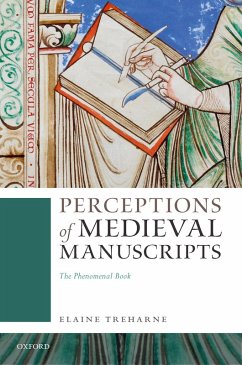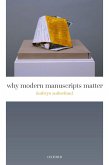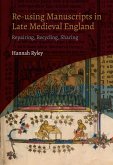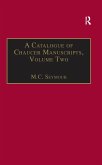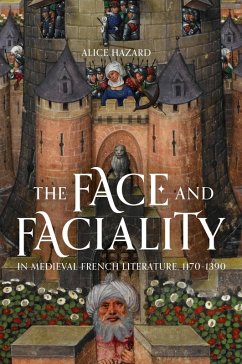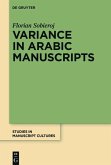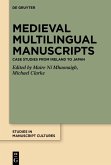Perceptions of Medieval Manuscripts takes as its starting point an understanding that a medieval book is a whole object at every point of its long history. As such, medieval books can be studied most profitably in a holistic manner as objects-in-the-world. This means readers might profitably account for all aspects of the manuscript in their observations, from the main texts that dominate the codex to the marginal notes, glosses, names, and interventions made through time. This holistic approach allows us to tell the story of the book's life from the moment of its production to its use, collection, breaking-up, and digitization--all aspects of what can be termed 'dynamic architextuality'. The ten chapters include detailed readings of texts that explain the processes of manuscript manufacture and writing, taking in invisible components of the book that show the joy and delight clearly felt by producers and consumers. Chapters investigate the filling of manuscripts' blank spaces, presenting some texts never examined before, and assessing how books were conceived and understood to function. Manuscripts' heft and solidness can be seen, too, in the depictions of miniature books in medieval illustrations. Early manuscripts thus become archives and witnesses to individual and collective memories, best read as 'relics of existence', as Maurice Merleau-Ponty describes things. As such, it is urgent that practices fragmenting the manuscript through book-breaking or digital display are understood in the context of the book's wholeness. Readers of this study will find chapters on multiple aspects of medieval bookness in the distant past, the present, and in the assurance of the future continuity of this most fascinating of cultural artefacts.
Dieser Download kann aus rechtlichen Gründen nur mit Rechnungsadresse in A, B, BG, CY, CZ, D, DK, EW, E, FIN, F, GR, HR, H, IRL, I, LT, L, LR, M, NL, PL, P, R, S, SLO, SK ausgeliefert werden.

